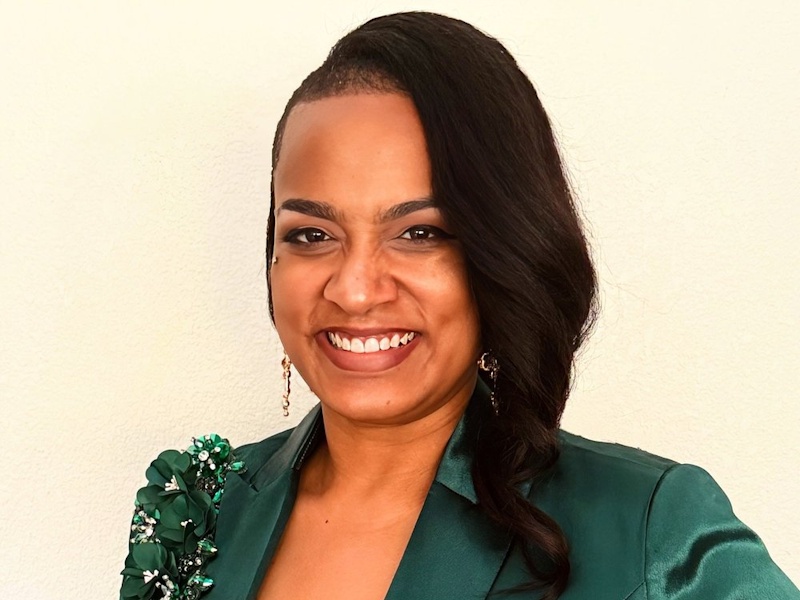ECCHO Celebrates Civic Health Month With Grassroots Leadership Across Wisconsin
Madison, WI — ECCHO (Engaging Communities to Change Health Outcomes) proudly joins the national celebration of Civic Health Month this August by spotlighting the powerful work of its community-based cohorts in Milwaukee and Rock County. These grassroots leaders are building civic health projects that elevate community voice, equity, and shared power to improve health outcomes statewide.
Civic health is the strength of community connections, civic participation, and a shared sense of belonging that together empower people to influence the social and political conditions affecting their lives.
At the heart of ECCHO’s approach is a belief in radical imagination — the idea that communities should not only challenge broken systems but boldly reimagine what health, justice, and civic power can look like. ECCHO equips its cohorts with essential civic tools and organizing strategies, while encouraging visionary thinking and long-term change led by those most impacted.
“Civic health is community health,” says ECCHO Director Kadijha Marquardt-Davis. “When we root our work in community wisdom and radical imagination, we don’t just fix broken systems, we ignite the power within our communities to create a future defined by justice, connection, and shared well-being.”
ECCHO is a two-year, community-led civic engagement program operating in Dane, Milwaukee, and Rock County. Through organizing, participatory research, and leadership development, ECCHO works to advance civic health as a strategy for achieving health equity and systemic change in Wisconsin.
Civic Health in Action
Milwaukee Cohort A: Community Solutions for Food Justice and Neighborhood Health
Milwaukee Cohort A is advancing community-led solutions to some of Milwaukee’s most pressing challenges including food insecurity, illegal dumping, and rising housing costs. Their key project urges the Wisconsin Department of Health Services to seek a federal waiver to join the SNAP Restaurant Meals Program, allowing eligible residents to purchase hot, prepared meals from restaurants with their FoodShare benefits. To demonstrate public support, cohort members have launched a petition and plan to present it directly to the Department of Health Services. In a county where approximately 150,000 people face food insecurity, this effort champions dignity, nourishment, and meaningful progress toward food justice in Wisconsin.
Milwaukee Cohort B: Advancing Policy to End Food Apartheid
Milwaukee Cohort B is leading a bold policy initiative to address food apartheid by proposing a city ordinance that would require a Full-Service Grocery Store in each of Milwaukee’s 14 food deserts, many of which are in communities of color. Their proposal defines these stores as having at least 15,000 square feet of retail space, with 80% dedicated to essential food items like fresh produce, meats, dairy, and canned goods. The cohort is actively building partnerships with local organizations to bring this vision of equitable food access to life.
Rock County Cohort: Strengthening Community Connection for Health Equity
The Rock County Cohort is focused on building stronger, more connected communities as a foundation for better health outcomes. Their work centers on increasing community cohesion and improving access to information, especially around policies that directly impact residents’ lives. By fostering trust and improving how information is shared, the cohort aims to empower residents to be more engaged, informed, and equipped to shape the future of their communities.
To learn more about ECCHO, please visit: www.ecchowi.org
NOTE: This press release was submitted to Urban Milwaukee and was not written by an Urban Milwaukee writer. While it is believed to be reliable, Urban Milwaukee does not guarantee its accuracy or completeness.
Recent Press Releases by Press Release
Live Nation Expansion Could Erase 117-Year-Old Historic Milwaukee Venue, NIVA Pushes Back
Feb 2nd, 2026 by Press ReleaseLive Nation Expansion Spurs Proposal to Demolish Independent Venue NIVA Warns Live Nation’s Taxpayer-Backed “Cultural Infrastructure” Is Actually Community and Cultural Extraction
New Leadership at Bread of Healing Clinic
Jan 31st, 2026 by Press ReleaseCommunity Invited to Meet New Executive Director of Bread of Healing Clinic and Convene on Health Care Access























